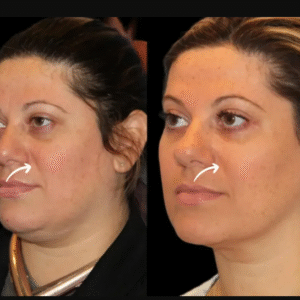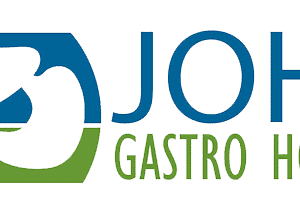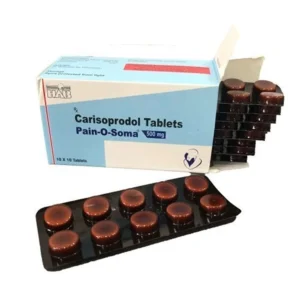Chronic back and nerve pain can be physically and emotionally debilitating, affecting daily life, mobility, sleep, and mental well-being. For many patients, traditional treatments like medication, physical therapy, or even surgery may not provide lasting relief. In such cases, Spinal Cord Stimulation (SCS) offers an innovative, minimally invasive option that targets pain at its source. At the Neurology and Pain Management Clinic (NPMC) in Delhi, Dr. Gautam Arora, a highly experienced neurologist and pain specialist, uses SCS to help patients reclaim their lives from the grip of chronic pain.
What is Spinal Cord Stimulation?
Spinal Cord Stimulation is an advanced neuromodulation therapy that involves implanting a small device near the spinal cord. This device delivers low-level electrical impulses to disrupt or “mask” pain signals before they reach the brain. Instead of pain, patients often experience a mild tingling sensation—or, in newer systems, no sensation at all.
The key goal of SCS is to reduce the perception of pain, allowing individuals to improve their function, reduce dependency on pain medications, and enhance overall quality of life.
Conditions That Can Benefit from SCS
SCS is primarily used to treat chronic nerve-related pain and back pain that has not responded to other treatments. Some of the most common conditions include:
-
Failed Back Surgery Syndrome (FBSS) – persistent pain after one or more spine surgeries
-
Chronic radiculopathy (sciatica) – nerve pain radiating down the legs or arms
-
Complex Regional Pain Syndrome (CRPS) – a chronic condition causing severe limb pain
-
Peripheral neuropathy – nerve damage often associated with diabetes or autoimmune disorders
-
Spinal stenosis – narrowing of the spinal canal that compresses nerves
-
Post-laminectomy pain syndrome – residual pain after spinal decompression surgery
At NPMC, Dr. Gautam Arora carefully evaluates each patient to determine whether SCS is an appropriate and beneficial treatment.
How Does the Procedure Work?
1. Trial Phase
Before committing to permanent implantation, patients undergo a trial procedure to evaluate the effectiveness of the stimulator. This involves:
-
Inserting thin wires (electrodes) into the epidural space near the spinal cord
-
Connecting the wires to an external pulse generator
-
Monitoring pain relief for 5–7 days
During this trial, patients are encouraged to resume normal daily activities to assess real-world benefits. If the trial results in a significant pain reduction (typically 50% or more), they are considered candidates for permanent implantation.
2. Permanent Implantation
If the trial is successful, a minor outpatient surgery is scheduled:
-
The electrodes are permanently placed under the skin near the spinal cord
-
A small pulse generator (battery) is implanted under the skin, usually in the lower back or abdomen
-
The system is programmed and controlled via a handheld device
The procedure is minimally invasive, and most patients return home the same day or after a short hospital stay.
Advantages of Spinal Cord Stimulation
-
Drug-Free Pain Relief
One of the major advantages of SCS is its ability to reduce or eliminate the need for opioid pain medications, which can cause side effects, dependency, and long-term complications. -
Customizable Therapy
The stimulator settings can be adjusted to target specific areas of pain or adapted as the patient’s condition evolves. -
Minimally Invasive and Reversible
Unlike major surgery, the implantation of a spinal cord stimulator is minimally invasive. If a patient does not benefit from the therapy, the system can be easily removed. -
Improved Function and Quality of Life
Patients often report better sleep, increased mobility, and an overall improvement in their ability to perform daily activities. -
Works When Other Treatments Fail
SCS can provide meaningful relief when surgery or medication has not been effective, making it a valuable option for long-term pain management.
Life After Implantation
After the device is implanted, follow-up care at NPMC includes:
-
Regular monitoring to fine-tune stimulation settings
-
Physical therapy guidance to help improve mobility and strength
-
Lifestyle recommendations to maximise the benefits of pain relief
Patients are taught how to control the device and adjust settings as needed. Modern SCS systems even allow for wireless control and rechargeable batteries, adding to patient convenience.
Are There Risks?
As with any medical procedure, SCS comes with some potential risks, including:
-
Infection at the implantation site
-
Device malfunction or movement
-
Scar tissue formation
-
Allergic reaction to device materials
However, under the care of an experienced specialist like Dr. Gautam Arora, these risks are minimized through careful screening, sterile technique, and thorough follow-up care.
Is SCS Right for You?
Spinal Cord Stimulation is not suitable for everyone. Ideal candidates include:
-
Individuals with chronic pain lasting more than 6 months
-
Patients who have not responded to conservative therapies
-
Those who are not candidates for further surgery
-
Patients willing to undergo a trial period
At NPMC, each patient undergoes a detailed evaluation, including imaging, nerve testing, and pain assessments, before being recommended for SCS.
Why Choose NPMC and Dr. Gautam Arora?
Dr. Gautam Arora is a leading expert in neurology and interventional pain management with a track record of successful spinal cord stimulator procedures. His compassionate approach, combined with advanced diagnostic tools and personalised care, ensures that patients receive the most appropriate and effective treatment for their condition.
Final Thoughts
Living with chronic back or nerve pain doesn’t have to be a lifelong struggle. Spinal Cord Stimulation offers a safe, reversible, and proven method of managing pain when other treatments have failed. With expert care from Dr. Gautam Arora at the Neurology and Pain Management Clinic in Delhi, patients can rediscover comfort, mobility, and a renewed sense of control over their health. To find out if you’re a candidate for spinal cord stimulation, book a consultation with Dr. Arora today and begin your journey to lasting pain relief.









